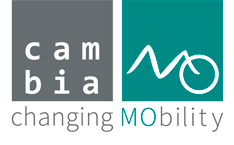Improving the analysis of road pricing acceptability surveys by using hybrid models
año
autorxs
en
tipo de publicación
url referencia
Para consultar el contenido ponte en contacto con CambiaMO rellenando tus datos en el siguiente formulario
Several international studies have analyzed the acceptability of road pricing schemes by means of an attitude survey in combination with the results of a stated choice experiment using both a descriptive analysis and a discrete-choice model with binary choice (» accept» or » not accept» the toll). However, the use of hybrid discrete choice models constitutes an innovative alternative for integrating subjective attitudes and perceptions deriving from the survey of attitudes with the more objective variables from the stated choice experiment. This paper analyzes the results of applying these models to measure the acceptability of interurban road pricing among different groups of stakeholders (road freight and passenger operators, highway concessionaires, and associations of private car users) with qualitatively significant opinions on road pricing measures. Our results show that hybrid models are better suited to explaining the acceptability of a road pricing scheme by different groups of stakeholders than a separate analysis of the survey of attitudes and a discrete-choice model applied on a stated choice experiment. A particular finding was that the strong psycho-social latent variable of the perception of fairness explains the rejection or acceptance of a toll scheme by road stakeholders. © 2013 Elsevier Ltd.
Di Ciommo, F., Monzón, A., & Fernández-Heredia, Á. (2013). Improving the analysis of road pricing acceptability surveys by using hybrid models. Transportation Research Part A: Policy and Practice, 49, 302–316. https://doi.org/10.1016/j.tra.2013.01.007
Para consultar el contenido ponte en contacto con CambiaMO rellenando tus datos en el siguiente formulario

